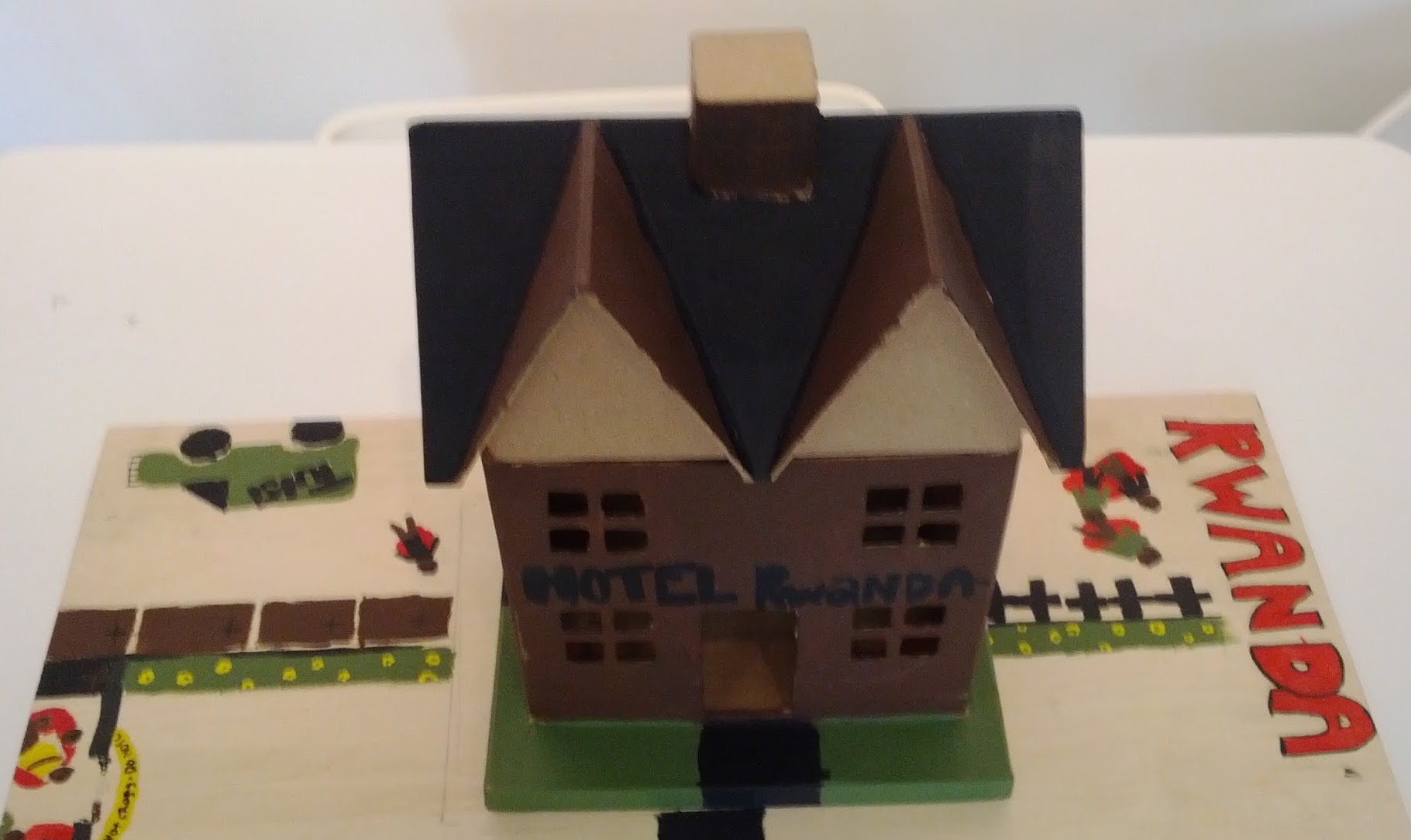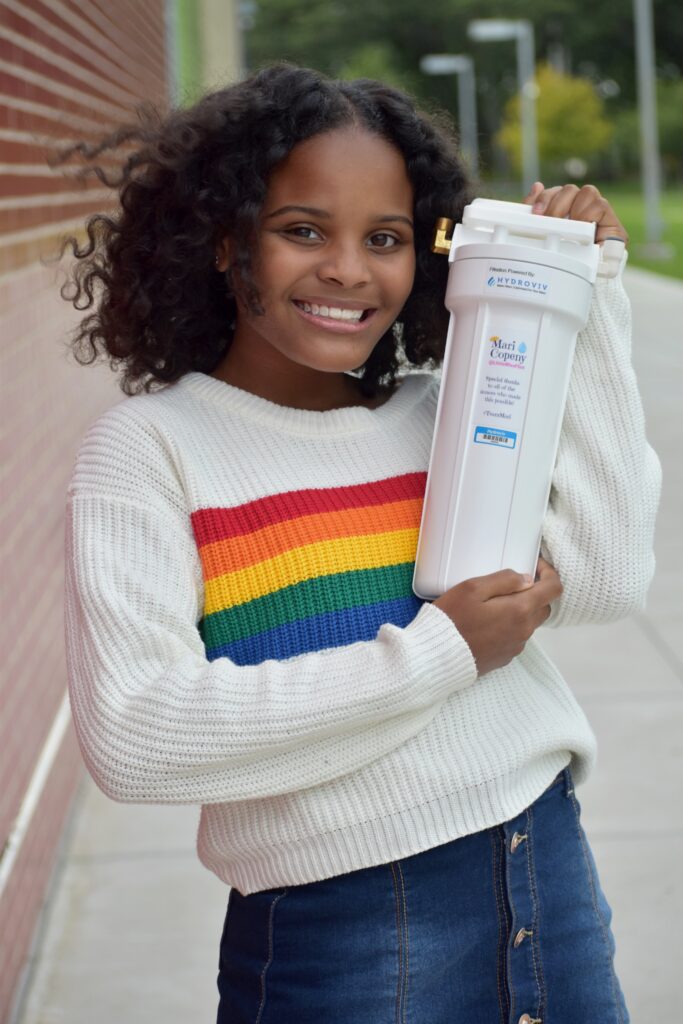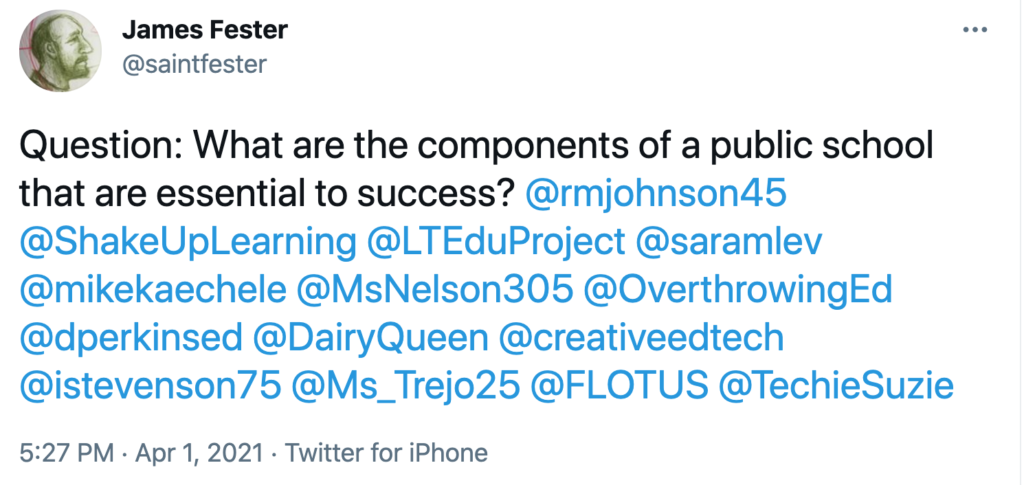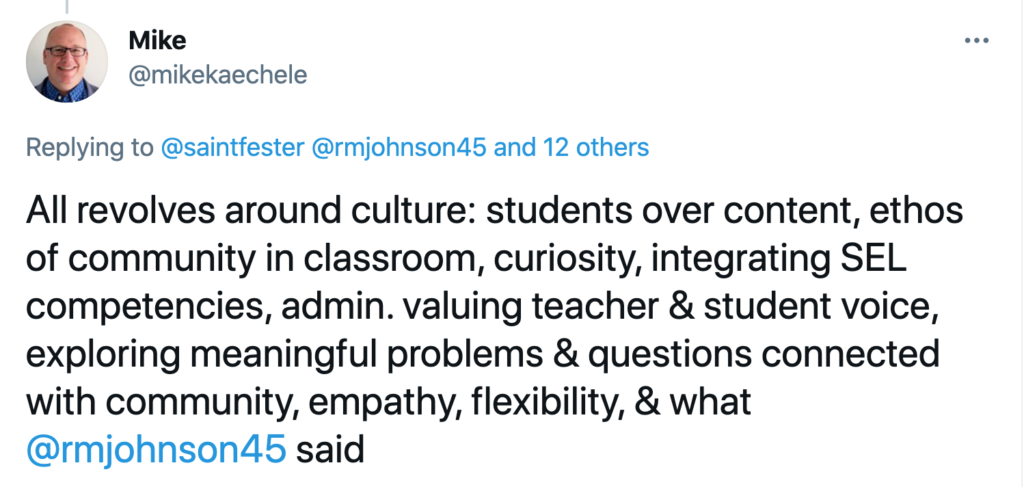Little Miss Flint
This past Thursday was Earth Day and I came across two inspiring stories. The first was Mari Copeny, “Little Miss Flint” and “Future President.” Mari is 13 years old, but has been an advocate for clean water in Flint, Michigan and against environmental racism for years. Seriously go read her bio on the link to see a long list of accomplishments. Mari’s activism started when she wrote a letter to President Obama when she was eight years old. Five years later she continues to fight and expand her influence. Last week she reached a goal of raising over half a million dollars for water filters to be distributed across the country. She is an amazing kid with a motivating story!
I have often contemplated what are the factors that lead to someone becoming Mari, Greta, or Malala. They often have strong family support to help them navigate traditional and social media to get their voice heard. They have compelling stories to share that connect their personal experience to global issues. Being young, they are powerful spokeswomen for their cause in ways that tug at people’s emotions. These girls exhibit so many of the competencies of Transformative SEL:
- The confidence of Self-Awareness to speak their truth
- Social Awareness of the injustice in their community and the structures that maintain it
- Self-Management through setting goals and taking initiative to not only achieve significant change but inspire others
- Networking, publicizing, and speaking with power demonstrating Relationship Skills
- Leadership in demanding change, not lip service from adults in Responsible Decision-Making
Leaders, not Heroes
These girls are not just learning about inequity and injustice in the world around topics like race, gender, and the environment, but are taking significant action to make real changes. They exemplify what I like to say:
We don’t need to prepare students for ‘someday.’ They can do meaningful work right NOW!
But I think that there can be a danger with how our society portrays these girls and others like them. They are not heroes, but leaders. Too often they are portrayed as exceptional young people and it comes across as though they have magical powers; that they are special in ways that other children are not. I believe the most important factor in their success is not exclusive abilities but that these girls choose themselves to make a difference. They are willing to speak out and take action. To be clear, the misconception is not with them, but with how we regard them. We treat them as superkids, “othering” their accomplishments so that the children in front of us can’t see themselves making a difference. I think the message of educators needs to be that Mari and others like her with a large platform are not exceptional, but normal kids who choose action. Leaders choose themselves! And most importantly, we should tell our students that they have the power to take action too! It is vital that our students see themselves in young activists as models for their own decisions.
Finding your Niche
The second inspiring story from last week comes from Sydnee Dawson, a former student of mine. I am reminded of two moments with Sydnee in my classroom. The first instance was during an essay assignment Sydnee had her head down on her table, not working at all. This was unusual behavior for her and after a short conversation, I realized that she doubted her ability to write and was giving up. I helped her get started, and she was fine to finish the assignment on her own. I remember this moment because she taught me how important giving encouragement can be to grow student confidence. The second moment was a project on propaganda. For her final piece Sydnee created a 3D representation of Hotel Rwanda. From the one side, it showed a respectable business that looked great to the outside world, but on the other side the violent genocide against the Hutu was happening. Sydnee recognized historical injustice and wanted to prevent it from happening again.


Upon graduating, Sydnee worked as a waitress to pay for college. On the side, she started making health and beauty products in her apartment. She used basic jars and printed homemade labels, selling to family and friends. She had a poorly designed website, that was dark and uninviting. Truth be told, Sydnee didn’t know how to run a business. So she reached out to mentors and worked hard. She updated her logo and redesigned her website. She started making Facebook videos demonstrating how she makes her product. Today she has a successful small business and no longer needs to work other jobs. She even gets paid to design websites for other businesses.
I know that Sydnee’s experience at our PBL school didn’t necessarily give her all of the tools that she needed to run a business. I doubt if she remembers all of the history that we investigated or that essay assignment at all. But I know that we cultivated her SEL skills to confidently persevere and find success. Sydnee practiced getting up in front of an audience and boldly pitching her ideas. She learned how to empathize with others through projects like her Hotel Rwanda propaganda art piece. She collaborated with other students from all kinds of backgrounds and learned how to compromise to complete projects.
Serving the Community
So last week Sydnee popped up on my Facebook feed with another project that she created. Previously she organized a large clothing drive for homeless folx and this past year she focused the drive on giving free clothes to young girls in her community. On this Earth Day, she hosted an event planting flowers at a local, Black owned business. She showed young children how to plant flowers and brought beauty and exposure to the business. You see, Sydnee is a leader who knows how to pay back. She may not be as famous as Mari, Greta, or Malala, but she consistently impacts Grand Rapids. Our students need to recognize that fame is not a prerequisite to making a difference. Fighting injustice is the responsibility of all citizens, young and old.
Our students are ready to make a difference. Are we ready to give them opportunities in our class?
From what I can see, these girls and many others like them are primarily advocating on their own time, outside of a traditional school day. Although Mari has started groups at her school in Flint, it feels extracurricular rather than part of the daily classroom. Why wouldn’t we as teachers harness this energy and passion to drive student learning in our class? What local issues around justice might your students study and advocate on? How are we developing Responsible Decision-Making skills, not just around personal behavior, but by making a meaningful impact on the community? How are we cultivating Social Awareness around the varied needs of those around us and how students can serve today?
Interested in learning how you can develop SEL skills integrated in your classroom? Check out my virtual workshops this summer! I am also booking workshops with schools across the country on PBL and SEL.



